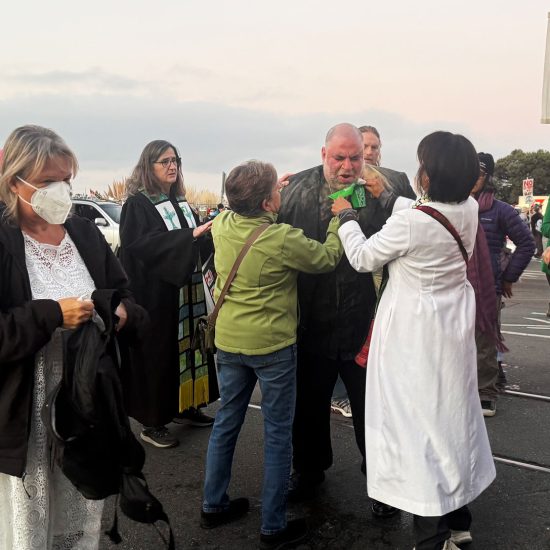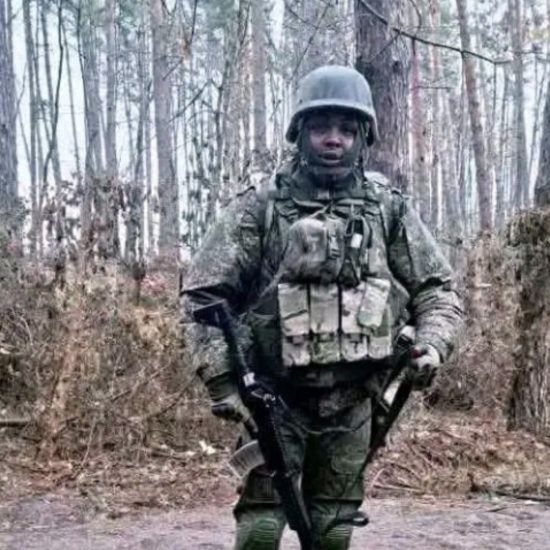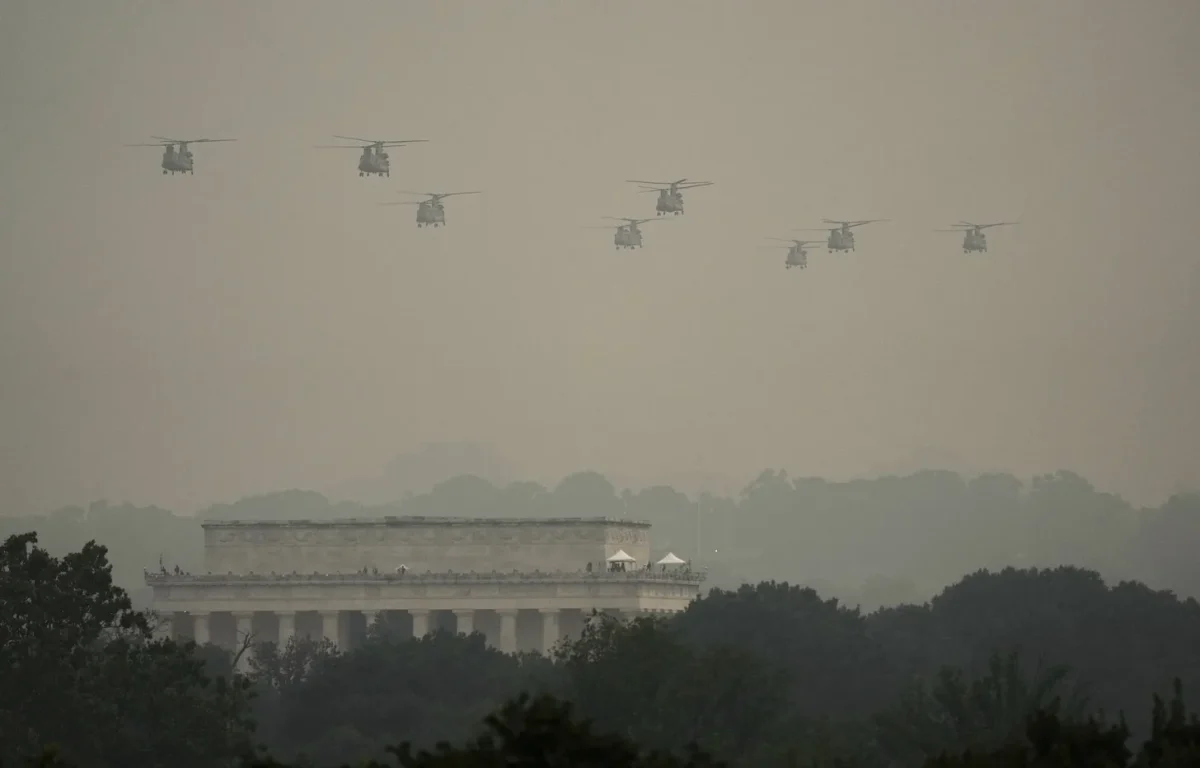
NOTE: This piece was originally published at our Substack newsletter A Public Witness.
As ancient Israel coronated its first king, the prophet Samuel wasn’t happy. So he decided to rain on King Saul’s parade — literally.
Samuel first tried to talk the people out of their request for a king. His speech in 1 Samuel 8 would work quite well today as a negative campaign ad shot in black-and-white and featuring ominous music in the background. Samuel warned that unlike the warrior judges who led the people in battle, a king would instead conscript their sons to fight on the frontlines. Additionally, a king would make the people plow his fields for his own benefit. The king would also take from the people’s crops and wealth. Samuel basically argued that if the people got a king, they would find themselves back in a form of slavery like their ancestors had experienced in Egypt. And he predicted they would eventually realize their mistake.
“On that day you will cry out because of your king, whom you have chosen for yourselves, but the Lord will not answer you on that day,” the prophet declared.
After the people ignored his pleas and voted for a king anyway, Samuel anointed Saul. It seemed to take the people a bit to accept the new ruler, but once they did, the prophet — who had led the nation as the last of the judges — offered a farewell address. This is still something politicians do. Presidents and some other public officials offer remarks shortly before leaving office, using the occasion to recount successes of the past and inspire a vision for an even better future. However, Samuel’s farewell address (found in 1 Samuel 12) was basically just an anti-monarchial rant and a defense of his ethical governance. That’s when he made one of the few biblical efforts to change the weather.
“Take your stand and see this great thing that the Lord will do before your eyes,” Samuel said as he wrapped up his speech. “Is it not the wheat harvest today? I will call upon the Lord, that he may send thunder and rain, and you shall know and see that the wickedness that you have done in the sight of the Lord is great in demanding a king for yourselves.”
Samuel decided to prove that desiring a king was bad by asking God to send rain. The text notes it rained that very day — though apparently not immediately, which would have been an impressive mic-drop moment. The narrator added that the rain stunned the people and led them to fear God and the prophet who could make it rain.
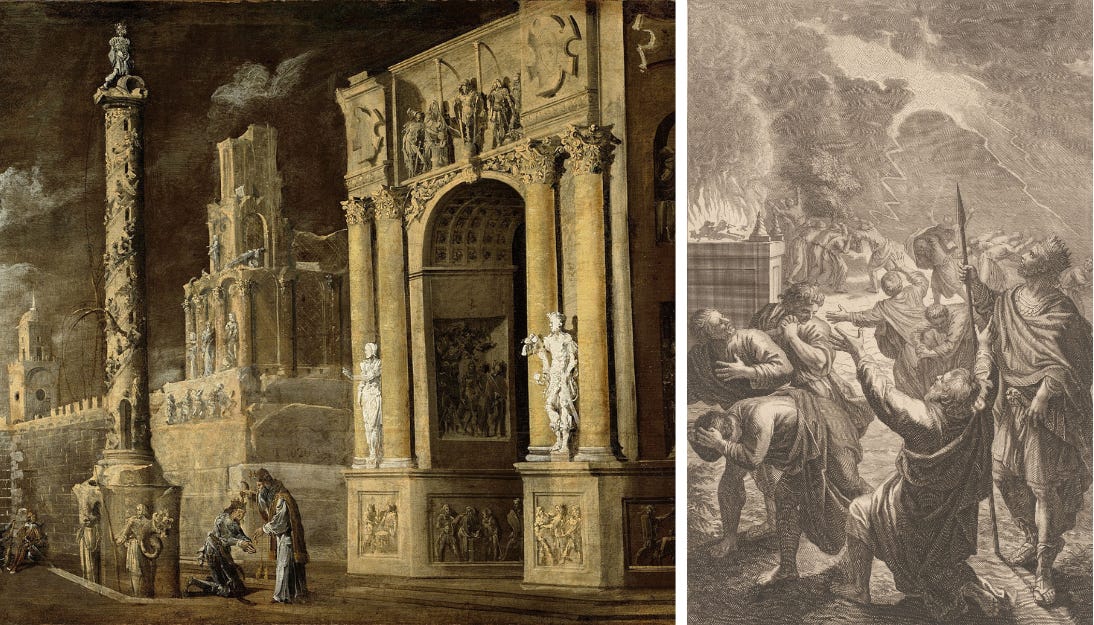
Left: Samuel Anointing Saul, a 17th-century painting by François de Nomé. Right: Samuel Prays to God for Rain, an 18th-century drawing by Gerard Hoet for a Bible. (Public Domain)
Kings and other authoritarian rulers can, as Samuel warned, control a lot of things. They can conscript people and send them off to die in war just so the ruler can perhaps control more land. They can unfairly tax the people, claim the best land and companies to add to their own wealth, and make lots of decrees to direct how people act. But there’s something dictators throughout history haven’t been able to control: the weather.
The rain falls on the just and unjust alike. But for rulers who portray themselves as godlike in their powers, the rain can expose such emperors as naked. That’s why North Korean dictator Kim Jong-un reportedly executed about two dozen people last year after heavy rains led to deadly floods that destroyed thousands of homes and killed more than 1,000 people. For someone who is deified through government propaganda, such devastation proves his impotency.
A lack of rain can also be dangerous for an authoritarian ruler. Researchers discovered that Roman emperors between 27 B.C. and 476 A.D. were more likely to be assassinated during times of drought. Since low rainfall means worse harvests, that could lead to hungry soldiers more willing to risk a mutiny.
Roman emperors and North Korean dictators can present themselves as godlike and control nearly every aspect of the lives of people under their rule, but rain remains out of the hands of any authoritarian ruler. That is, of course, what made Samuel’s act so powerful.
Another leader learned over the weekend that the rain cannot be bent into submission, even by the most powerful military in the world. President Donald Trump, who has long wanted a military parade, ordered one to occur on his birthday. So 7,000 soldiers marched as tanks and other large weapons of war rolled through the streets of Washington D.C. on Saturday (June 14), causing damage to streets that will now need to be fixed. The $45 million show slowly moved through the city toward Trump and many of his Cabinet members, passing by empty bleachers and large grassy areas empty of the anticipated crowds. One reason so few people showed up for the president’s military parade was the bad weather.
With the forecast — and the skies — looking ominous, the parade started 30 minutes earlier than advertised, in hopes of moving things along before the rain. The Army canceled planned flyovers of Thunderbirds and F-22 fighter jets, while the military crafts that did fly during the parade couldn’t be seen well in the low visibility. Only a few drops of rain fell, but the forecast, a flood watch, and the dark clouds had already sent the message. It probably also didn’t help that the high humidity made the day a miserable one for outside activities. The small crowd added to the low-energy feel of the whole event, though Trump not only claimed it was great but also inaccurately insisted it didn’t rain at all.
Interestingly, the first recorded fib in a database of 5,276 false claims by Trump during his first term is also about rain. After it started raining during Trump’s first inaugural address in 2017, he falsely insisted that day at an inaugural ball that it did not rain until after he “finished the speech [and] went inside.” He called that fake scenario proof that “God was looking down on us.”
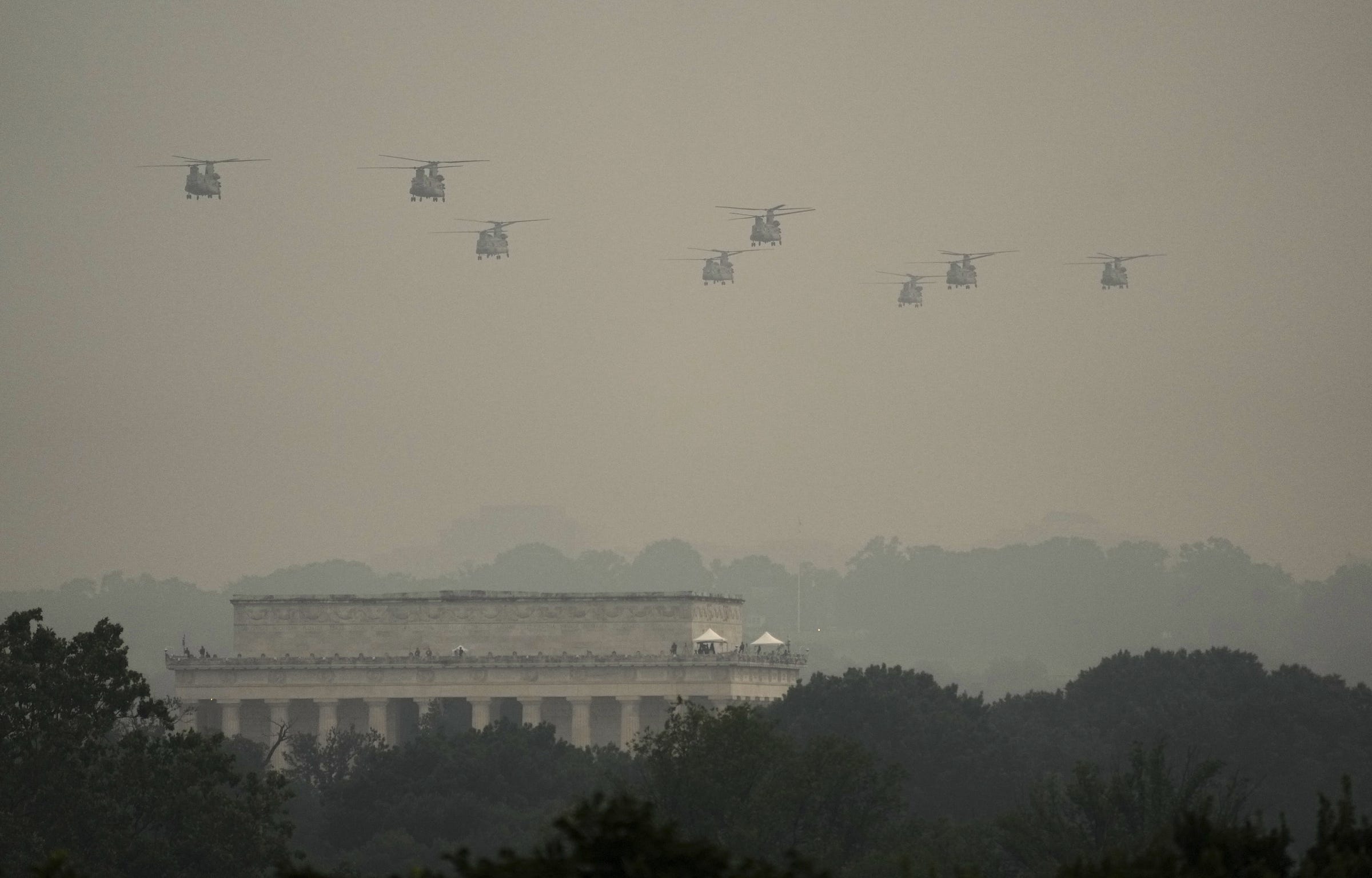
Military helicopters fly by the Lincoln Memorial during a parade coinciding with President Donald Trump’s 79th birthday on June 14, 2025, in Washington, D.C. (Jacquelyn Martin/Associated Press)
While a few sprinkles landed on Trump’s parade and the threat of rain drove off his crowd, millions of Americans across the country showed up at rallies to declare “No Kings” and show opposition to the military parade, the administration’s immigration raids and attacks on protesters in Los Angeles, and other concerning administration moves. Even more than the weather, the crowds showed a rejection of Trump’s rule. As Will Bunch of the Philadelphia Inquirer — in the city with the flagship No Kings rally — put it: “It would be a gross understatement to say it rained on Donald Trump’s birthday parade Saturday night. Man, it poured.” By this, Bunch meant it had already rained men, women, and children at No Kings rallies.
Several No Kings rallies attracted six-figure crowds and thus each likely surpassed the attendance at the military parade, including Boston, Chicago, Los Angeles, New York City, and San Francisco. Throw in about 2,000 other rallies of various sizes and estimates are that around 5 million people attended a No Kings rally. Held in every state, the rallies attracted crowds in blue and red communities. In a Michigan town with a population of around 900, about 400 people showed up for a No Kings rally. I joined about 7,000 people at the No Kings rally at the Iowa Capitol in Des Moines. And even in places where it rained, people still showed up. Altogether, the No Kings rallies were the most significant protest event in modern U.S. politics, dwarfing the “Tea Party” rallies during the Obama presidency as well as protest marches during the first Trump term.
Even more than a little rain — predicted by a prophet or the weather channel — people refusing to bow is a real threat to any would-be authoritarian ruler. Trump has long shown himself to be particularly obsessed with the size of his crowds. His first term started with him forcing his press secretary to go out and offer “alternative facts” and falsely claim Trump’s inaugural crowd was the biggest ever even though it was clearly much smaller than Obama’s. His new administration lackeys are trying the same tactic by lying about how many people allegedly attended the parade. The footage on Saturday in D.C. versus rallies across the country drenched Trump’s ego.
Rain clouds dampening a ruler’s military parade and even more people showing up to declare “No kings” is quite a moment. I won’t conjure up the prophet Samuel from the great beyond to inquire of him, but I suspect he’d be pretty happy about it.
As a public witness,
Brian Kaylor
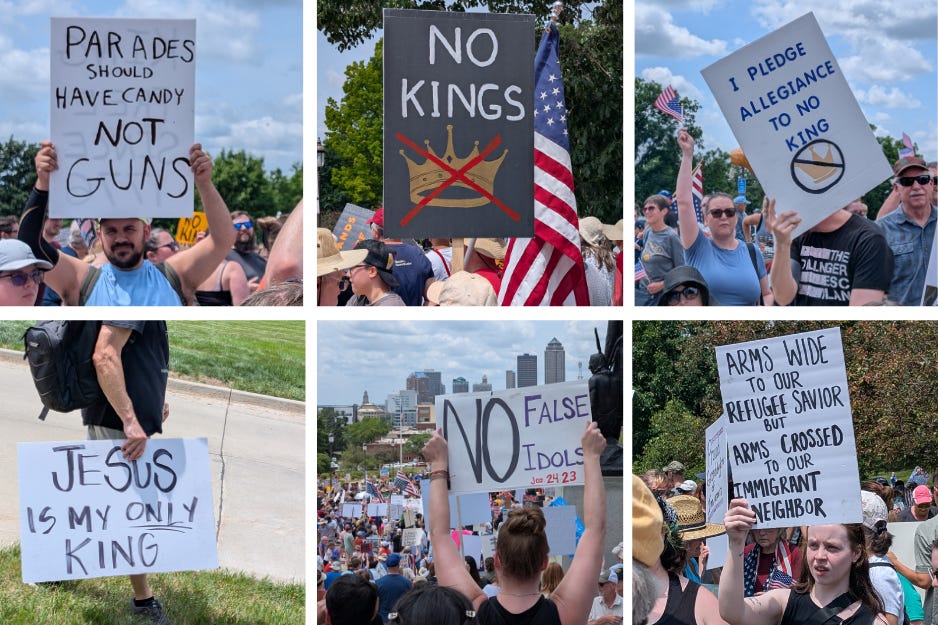
Signs at the No Kings rally outside the Iowa Capitol in Des Moines. (Brian Kaylor/Word&Way)

